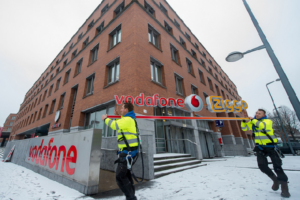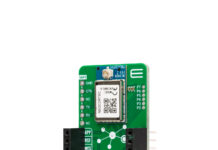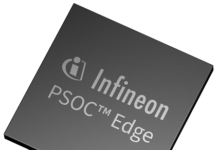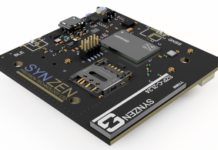
Vodafone Netherlands (VodafoneZiggo) has announced that its NB-IoT network is live in 20 locations in Amsterdam, Rotterdam, Eindhoven, Maastricht, Utrecht, Hilversum, Den Bosch, Groningen, Delft and Schiphol. The operator’s UK parent Vodafone Group, meanwhile, has announced successful NB-IoT interoperability tests with modules from Qualcomm and UK-based Neul with networking equipment from Nokia, Ericsson and Huawei in several markets, clearing the way for accelerated commercial rollout. Luke Ibbetson, Vodafone’s head of R&D, said: ‘All of these vendors’ NB-IoT radio access network technology has been successfully interconnected with Vodafone’s IoT core network.’ Vodafone previously launched commercial NB-IoT services in Spain and is currently rolling out NB-IoT networks in several other countries including Germany and Ireland.
Bell Canada has revealed that it will launch a LTE-M (LTE Cat M1) IoT network in 2018 in response to demand for low power, wide area (LPWA) device connectivity, having already carried out LTE-M pilots with selected customers. The move mirrors LTE-M rollouts across the border in the US, where last month AT&T completed nationwide deployment of its live LTE-M network ahead of schedule.
Russia’s Rostelecom and the city authority of St Petersburg have signed a smart city cooperation agreement, intending to invest in the development of ‘Safe City’ and IoT applications for transport, e.g. video surveillance and traffic control.
In more Russian IoT activity, MegaFon signed a cooperative agreement with Russian Railways to develop and implement IoT technology solutions e.g. to collect and transmit information about infrastructure/machinery autonomously, alongside a deal to provide mobile internet coverage across the entire rail network (including onboard high speed/long-distance trains).
Also in Russia, Mobile TeleSystems (MTS) and Nokia have inked a partnership agreement to develop and implement Nokia-supplied digital solutions/products in cooperation with MTS’ IT subsidiary NVision, in areas including IoT, cloud technologies, digital health care, electronic commerce, virtual reality and 5G converged networking (augmenting a 5G development agreement the pair signed just over a year ago).
In a similar vein, Belgian multi-service operator Telenet and China’s ZTE have expanded their existing relationship by signing a Strategic Partnership Agreement on 5G and IoT.
In the South Pacific, Tonga’s state-owned water utility, Tonga Water Board*, has contracted tech firm Itron to deliver its ‘OpenWay Riva’ IoT platform/services, in a project under which Tonga is converging water and electricity utility management via the Itron platform.
Finally, the 5GCAR project consortium led by Ericsson has been selected for EU funding under phase 2 of the 5G Infrastructure Public Private Partnership (5G PPP), aiming to develop a 5G architecture providing reliable, low-latency end-to-end vehicle-to-everything (V2X) network connectivity. 21 projects have been retained under phase 2 of the 5G PPP, initiated by the European Commission (EC) and industry manufacturers, telecoms operators, service providers, SMEs and researchers, with a budget of EUR154 million (USD173 million) for this phase. The 5GCAR project will continue tests to ensure the safe deployment of connected vehicles by 2020, running for two years (June 2017-May 2019) with a EUR8 million budget. The consortium includes 14 partners, including Orange Group, Huawei, Nokia and Volvo.
Source: TeleGeography



















